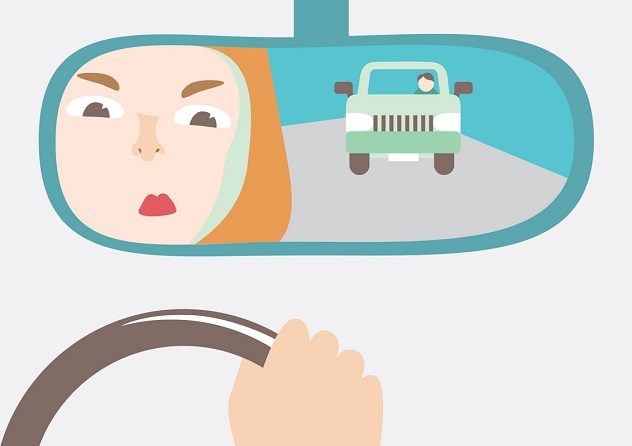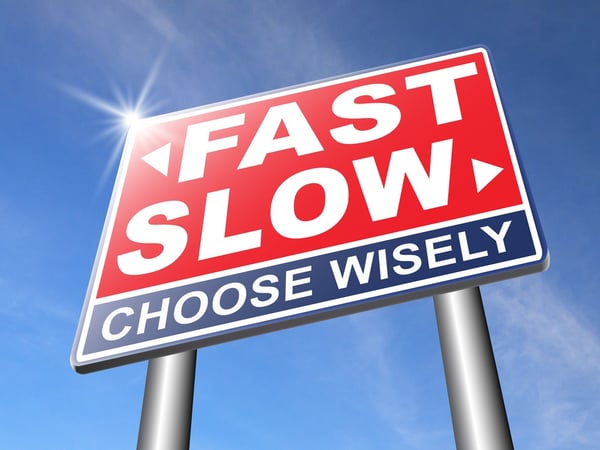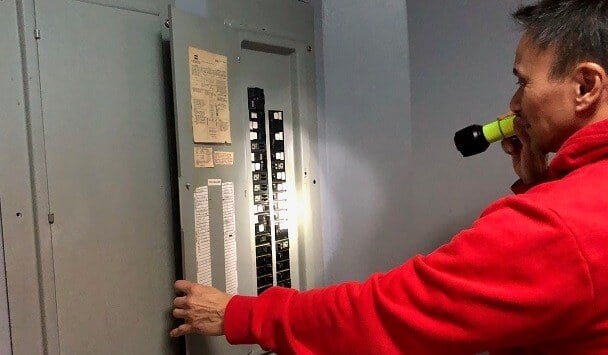
You’re traveling down the left lane of the I-64 with your windows down, enjoying a beautiful Virginia day, singing along with your favorite playlist when suddenly you hear loud honking from behind. You look in your rearview mirror and notice a not-so-nice gesture from the driver behind you. What’s wrong with this guy? Where’s the fire? Does he think he owns the road or something?

Whether you’re on Route I-81, I-95, or another Virginia interstate, there's a left-lane loafer law focused on you. And according to a new AAA poll, 73% of Virginia drivers do not know using the left lane for anything other than passing is illegal.
Commonwealth law requires drivers to use the left lane only for passing. Once a driver completes the pass, the driver must then move back into the right lane.
Virginia lawmakers are serious about enforcement to the tune of $100 for left-lane loafing. They understand the driving safety issues with speedy drivers weaving in and out of traffic to pass when the left lane is clogged. Also, trucks may not travel in the left-most lane of interstates with three or more lanes by direction when the speed limit is 65 mph or higher.

The left lane is for passing, not speeding
Not to say speeding is not a more serious issue at all. Here at NNINS, we're very concerned about the growing number of traffic fatalities related to distracted driving, as well as impaired driving and speeding. In 2017, there were 815 deaths on Virginia roads- that's up from 705 in 2016, according to the Virginia Department of Transportation. Last year, the number of overall crash fatalities decreased for the first time since 2014 but still totaled 819.
Reasons to use the left lane only for passing
We acknowledge obvious safety issues with drivers traveling under naturally flowing traffic speeds on interstates, especially in a lane designated by Virginia law for passing. So here are three things to consider before you poke down the left lane: (If you think you're doing more of the honking, we have a blog post for you too!)

1. It’s the law
Many Virginians don’t know it’s a law. And now you might get a pricey ticket for doing it up to the tune of a $100 fine for left-lane loafing. In fact, every state has “courtesy lane laws” and some, including Maryland, North Carolina, and Pennsylvania, are passing similar legislature to enforce them with increased fines. Also, trucks driving in Virginia may not travel in the left-most lane of interstates with three or more lanes by direction when the speed limit is 65 mph or higher.
2. It’s safer
Staying over to the right allows faster traffic to keep moving on the left and decreases the chances of dangerous lane changes by those trying to get around slower drivers. Staying in the left lane to “teach a speeder a lesson” is bound to bring trouble, including road rage. It’s best to mind your own business and let officials enforce speed limits.
You can report aggressive drivers too. If you are traveling on an interstate in Virginia, pull off the road in a safe place or ask a passenger to dial #77 on your mobile phone. Be prepared to give a description of the driver's vehicle and the license plate number, vehicle location, and direction of travel.

3. You’ll probably get there faster and feel better too
Staying over in the right lanes will not only help you avoid the stress of aggressive drivers, but it will also help you save on gas and may keep your car insurance rates lower. Plus, get this: research shows allowing faster traffic to move freely to the left helps to cut down on gridlock. And every Virginian would feel better about that!
Virginia lawmakers got it right with passing this new law and it will continue to make our roadways safer. By keeping slower traffic to the right and obeying posted speed limits, all of us on the roads should be a little safer. Now, put down that phone!
Learn more about car insurance in Virginia
Sources:
https://law.lis.virginia.gov/vacode/title46.2/chapter8/section46.2-804/
THE NORTHERN NECK INSURANCE INTEGRITY PROMISE — We pledge to provide straight talk and good counsel from our NNINS Virginia insurance experts through our blog. While we hope you find this to be a helpful source of information, it does not replace the guidance of a licensed insurance professional, nor does it modify the terms of your Northern Neck Insurance policy in any way. All insurance products are governed by the terms in the applicable insurance policy.




